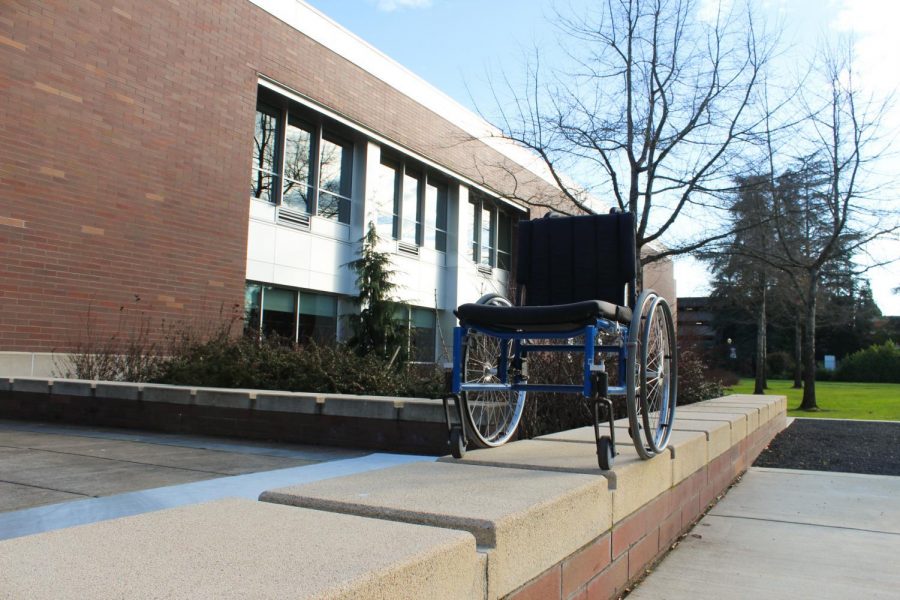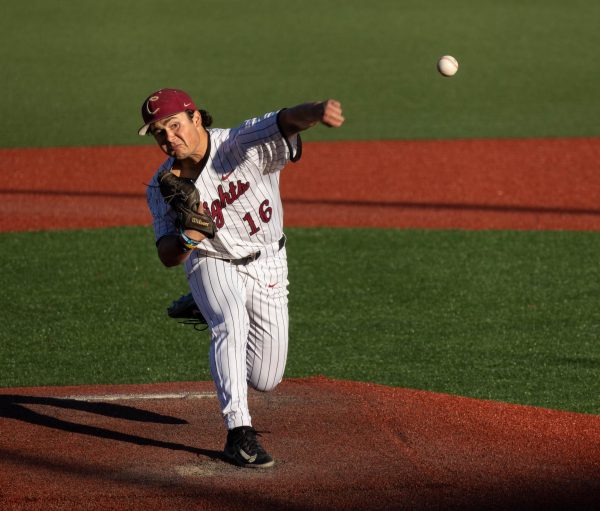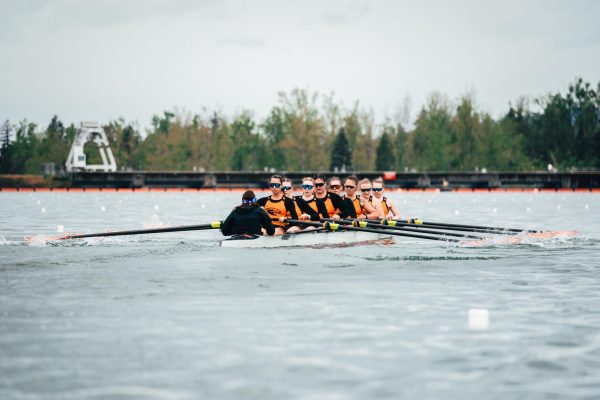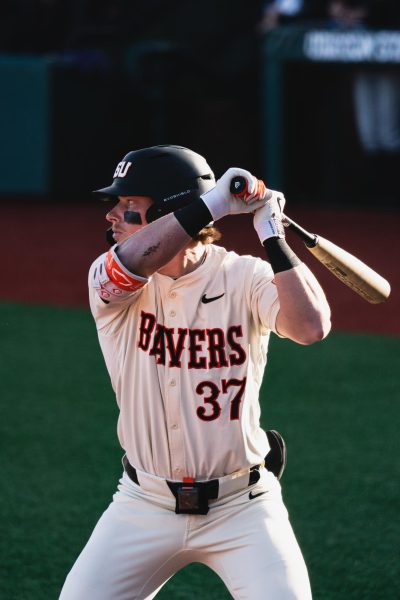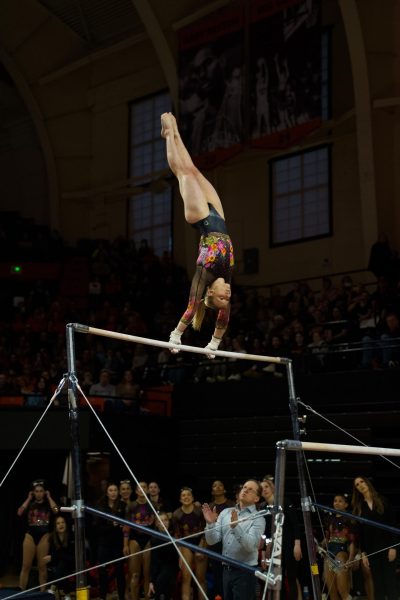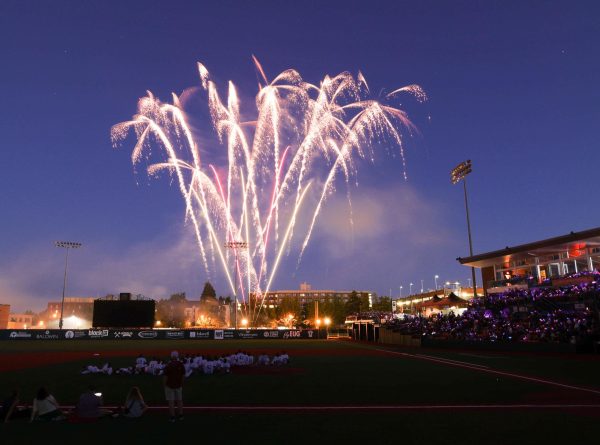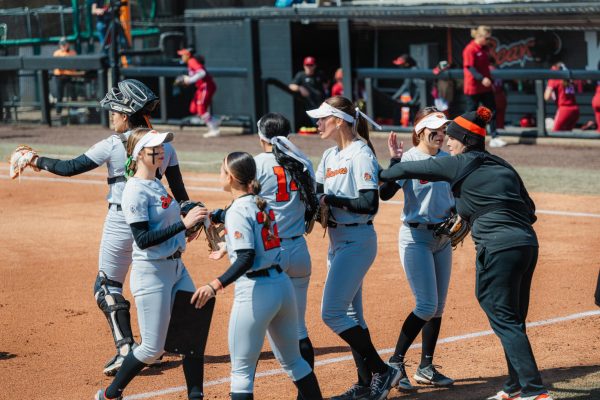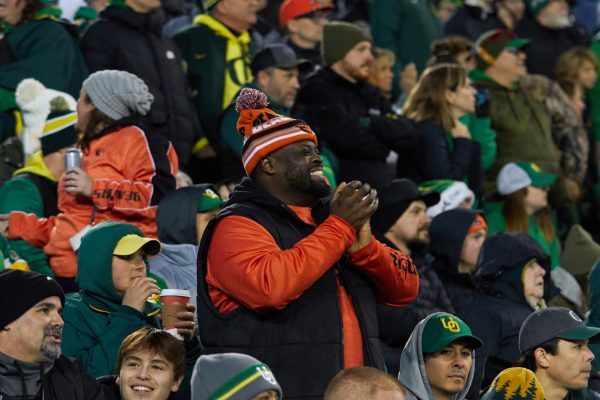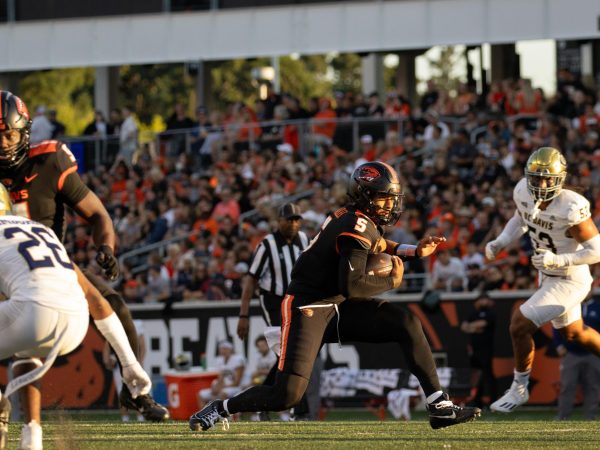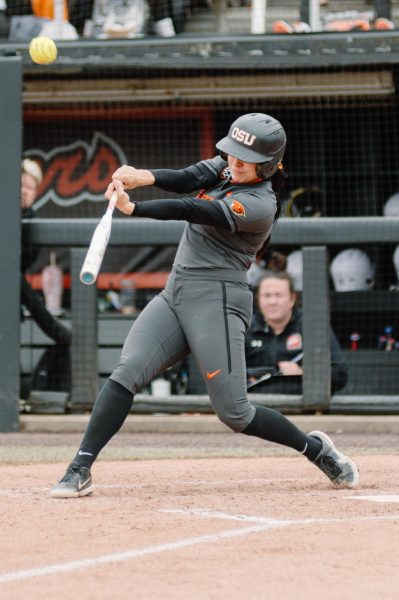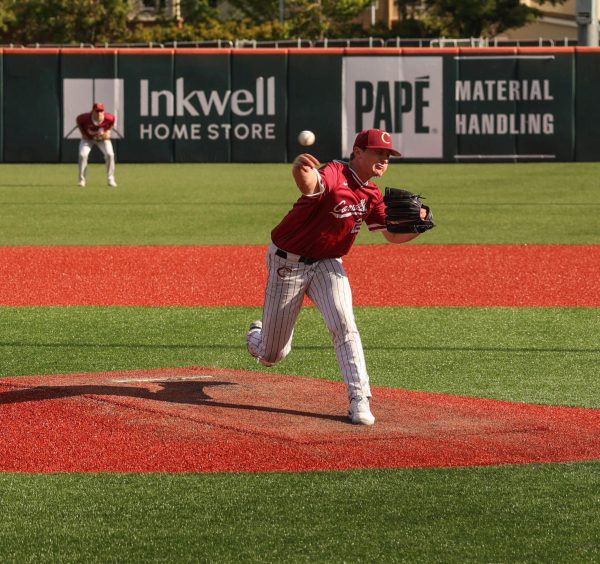Oregon State working to provide access to athletic opportunities for all
January 29, 2021
Picture this: the COVID-19 pandemic doesn’t exist, you need to exercise and you’re itching for an opportunity to get together with your friends. So, you all make a team and join the intramural basketball league.
Under normal world circumstances, Oregon State University would be a place that offered such a possibility, including an option for wheelchair basketball, a sport that includes the same rules as basketball except is played with the athletes on wheelchairs instead of standing.
With corresponding tweaks to the dribbling rules in traditional basketball, the sport is allowing and accessible for people with a variety of physical disabilities to participate as well.
Recreational Sports is the organization at Oregon State that provides students with opportunities to play sports and stay fit. They are in charge of places such as Dixon Recreation Center and Student Legacy Park and they run the intramural sports leagues, which include multiple adaptive sports leagues, such as wheelchair basketball.
Jill Wells, an Administrative Program Assistant for Recreational Sports, described what the organization hopes to offer to the Oregon State community.
“Recreational Sports offers wheelchair basketball and other adaptive sports, or para sports as part of the department’s commitment to inclusivity, which includes providing competitive activities for everyone in the campus community to enjoy,” said Wells, via email.
Sports fans may recognize the term para-sports as similar to the Paralympic Games, the set of competitions following the Olympic Games which involve adaptive sports for athletes with disabilities to compete in.
In addition to wheelchair basketball, one of the more commonly known adaptive sports, the Paralympics includes two other sports that Recreational Sports also offer as an intramural league. This includes sitting volleyball, a sport played like volleyball, with the exception that players are required to have at least one buttock on the ground at all times.
Additionally, there is goalball, a sport similar to handball where the goal is to throw a ball into the opponent’s goal. Goalball, however, is designed for people with visual impairments, and thus has bells inside of the ball so that the ball can be tracked audibly instead of visually.
Recreational Sports has also offered a wheelchair basketball skills challenge league and a beep ball derby, similar to a home run derby except played with a ball that beeps to allow people with visual impairments to play as well.
Overall, there is at least one adaptive sport intramural league available per term, and wheelchair basketball is offered once a year.
Additionally, Recreational Sports actually promotes the participation of able-bodied people in adaptive sports as well.
“Participants without disabilities are also encouraged to participate in adaptive sports to experience something new and view sports from a different perspective,” said Wells.
Angler Emerick, an Oregon State graduate who played in the intramural wheelchair basketball league while at Oregon State, was a big fan of the community that the intramural league created.
“Basketball is my favorite sport, so being able to play another version of it was fun,” said Emerick via email. “I love the idea of playing an adaptive sport. I participated in them all through high school and wanted to continue that streak. [The OSU IM wheelchair basketball league] was one of the best communities I’ve played with and in. Due to the fact that it was so new, we were always like ‘who knows and let’s just have fun. Except against the defending champs. No love lost there.”
The decision to provide these opportunities for people with disabilities to be able to have opportunities to play in intramural leagues is part of a national trend. In 2013, the first year that wheelchair basketball was offered at Oregon State, the United States Department of Education shared a guidance letter to secondary education schools across the country stating that equal opportunity should be provided in terms of athletics at all levels. Oregon State followed suit.
“Recreational Sports added wheelchair basketball to the list of competitive sports programs to align with the department and the National Intramural-Recreational Sports Association’s commitment to providing inclusive programming,” said Mitch Wiltbank, Sports Programs Coordinator over email.
Recreational Sports attempts to promote inclusivity through methods beyond intramural leagues as well. Facilities such as Dixon have multiple entrances and modes of transportation to facilitate access for people with disabilities. Accessible equipment is also available through things such as weight machines that have various settings to help people with physical disabilities to use the machines and a chair lift for the pool.
Additionally, the climbing centers run by Recreational Sports also attempt to remain accessible, according to Emily Abrams, the Operations Coordinator for the Adventure Leadership Institute.
“Students with a wide range of abilities, including visual or physical impairments, have enrolled in ALI classes or used the wall for drop-in climbing,” said Abrams, via email. “ALI climbing center staff have developed processes that adapt operations and have worked with IMPACT on campus to learn how to make the Climbing Center a more accessible space.”
However, with the COVID-19 pandemic still ongoing, and impacting various facets of the world, there have been limitations to what Recreational Sports can offer. The Dixon Recreation Center, for example, has been on and off in terms of being legally allowed to be open, and was closed for a stretch once again, reopening on Jan. 28, 2021.
Equipment from Dixon and ALI can still be checked out, and with Dixon open once again, people will be able to use all the services there through reservations and spaced-out equipment. Additionally, Recreational Sports also offers other COVID safe opportunities as well, according to Brian Hustoles, the Associate Director of Marketing, Communications and Events for Recreational Sports.
“We have been intentional in our efforts to provide students with both in-person and virtual experiences,” Hustoles said, over email. “During January, Recreational Sports provided over 25 free virtual Group Fitness classes a week and continues to offer free fitness and wellness coaching for Recreational Sports members. Intramural Sports offers outdoor leagues and events and free virtual programs, including e-sports and movement-based competitions. And the Adventure Leadership Institute hosts virtual programs, leads outdoor Adventure Club trips, and provides outdoor gear rental.”
Through a pandemic and all, Oregon State is still attempting to offer athletic and fitness activities to people with disabilities.












































































































